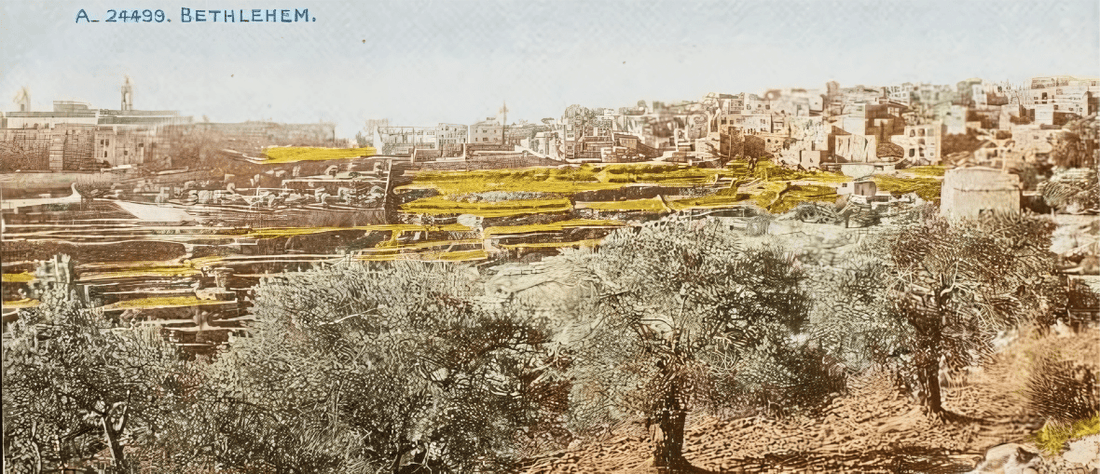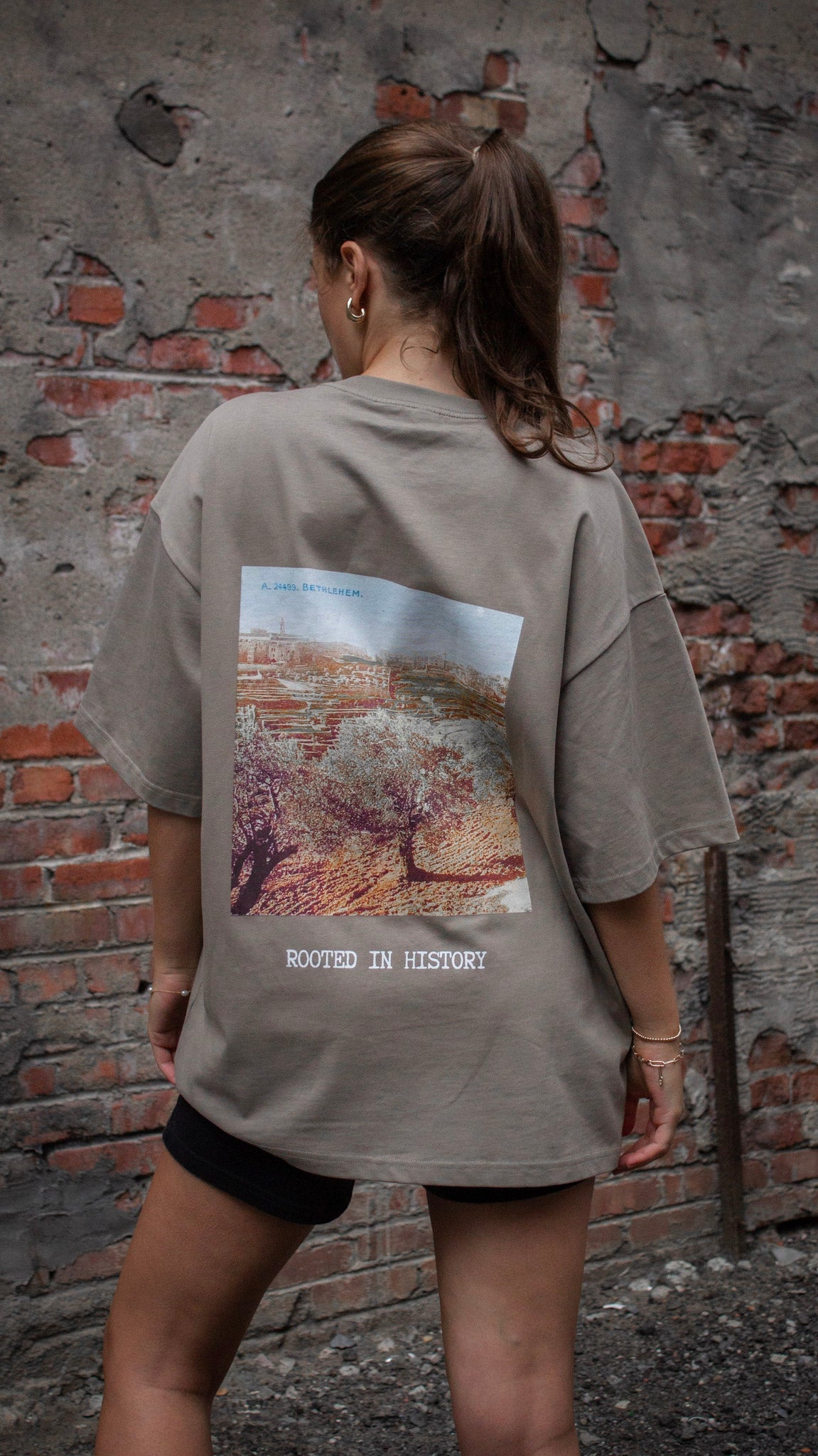
The Palestinian Olive Tree: A Symbol of Roots, Resilience, and Endurance
Share
Origins of the Symbol: A Legacy of Agriculture and Culture
The history of olive cultivation in Palestine stretches back thousands of years. Archaeological evidence shows that olives were harvested in the region as early as 5,000 years ago, making Palestine one of the oldest regions in the world with a continuous tradition of olive farming. For generations, Palestinian families have cultivated olive trees as a source of livelihood, nourishment, and pride.
The olive tree is deeply embedded in Palestinian culture, with groves often passed down through families for generations. For Palestinians, the olive tree represents not only economic sustenance but also a sense of heritage and a symbol of steadfastness. The trees are known for their resilience; even in harsh conditions, they survive and continue to bear fruit, reflecting the enduring spirit of the Palestinian people.

Taken during the first Intifada, this black-and-white photograph captures a glimpse of an old olive tree in the village of Kaubar.
What the Olive Tree Represents
1. Connection to the Land: The olive tree is a living connection to the Palestinian landscape and heritage. As olive groves have been cultivated for thousands of years, they represent an unbroken bond between the people and their land. Owning and nurturing an olive tree is an act of stewardship, a testament to the Palestinian claim to their homeland.
2. Resilience and Survival: The olive tree symbolizes the resilience of Palestinians in the face of adversity. Known for its ability to thrive in arid soil and survive through harsh conditions, the olive tree reflects the Palestinian spirit of survival and persistence despite displacement, conflict, and hardship. For many, the olive tree is a symbol of endurance and hope.
3. Cultural and Economic Significance: Olive oil is an essential part of Palestinian culture and diet, and olive harvesting is a deeply rooted tradition in Palestinian society. The olive harvest season is a time of community gathering, celebration, and economic sustenance, with families working together to harvest olives and produce olive oil. The cultural and economic significance of the olive tree strengthens the Palestinian resolve to protect their land and heritage.
Cultural Reflections and Historical Significance
The significance of the olive tree is echoed by many Palestinian leaders and cultural icons. The revered poet Mahmoud Darwish once wrote, “If the olive trees knew the hands that planted them, their oil would become tears.” Darwish’s words capture the depth of the Palestinian connection to the olive tree, symbolizing loss, resilience, and memory. The olive tree stands as a reminder of the Palestinian connection to the land and the legacy of those who nurtured it.
Darwish’s poetry resonates with Palestinians, turning the olive tree into a powerful emblem of heritage and the right to belong. Born in 1941, Darwish’s writings explore themes of identity, exile, and the longing for home. Through his words, the olive tree embodies memory, heritage, and the enduring hope for justice, reflecting a deep-seated commitment to preserving the Palestinian cultural legacy.
The Olive Tree and the Future
As Palestinians continue to face challenges, including land confiscation, settler expansion, and restrictions on movement, the olive tree remains a symbol of steadfastness and hope. It endures as an emblem of Palestinian resistance, rooted firmly in the soil and in the hearts of the people. The olive tree stands as a testament that, despite the challenges, the Palestinian spirit remains unshaken.
The Palestinian olive tree is not just a crop; it’s a living testament to a heritage that spans millennia. For Palestinians, it serves as a tangible reminder of their history, resilience, and unyielding bond to the land. As generations come and go, the olive tree’s significance remains constant—a symbol of heritage, of deep-rooted ties, and of a future where justice and peace may one day be realized.

